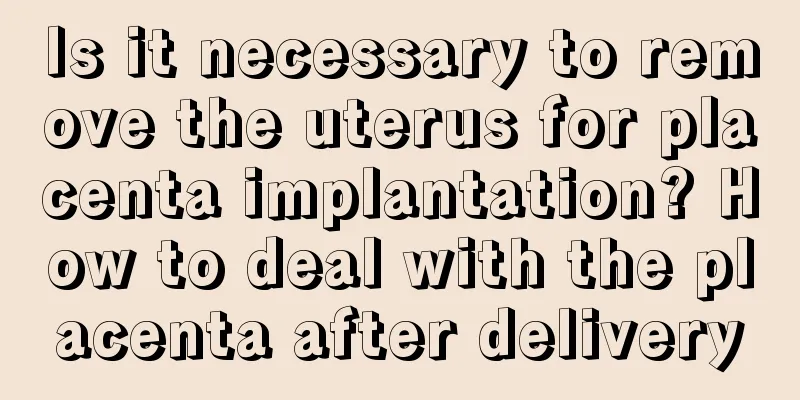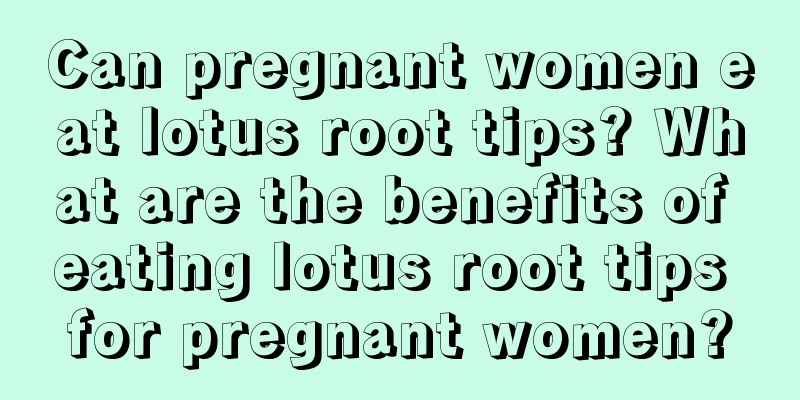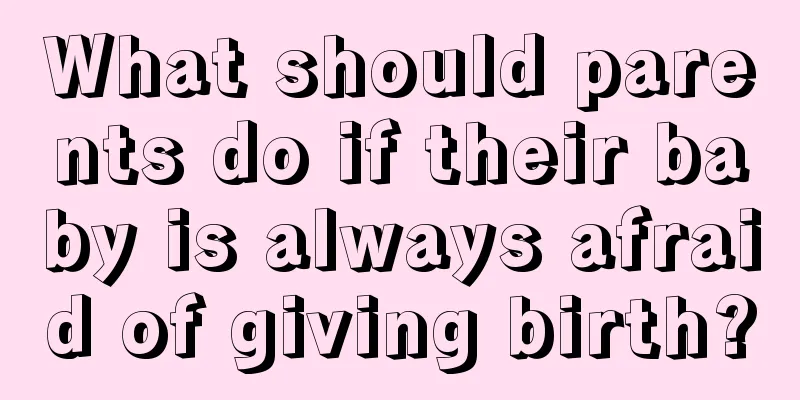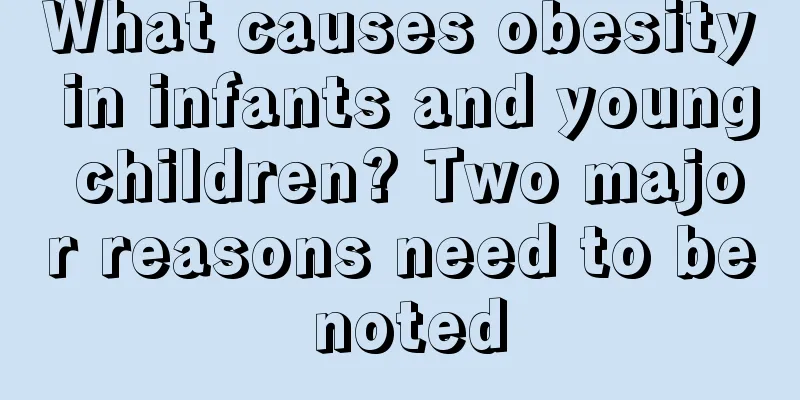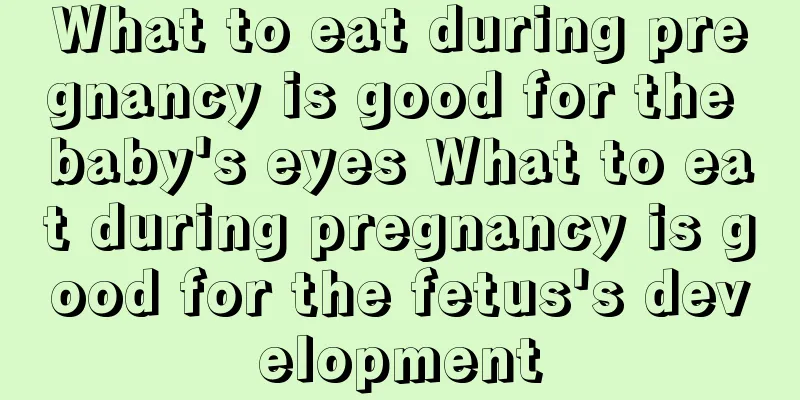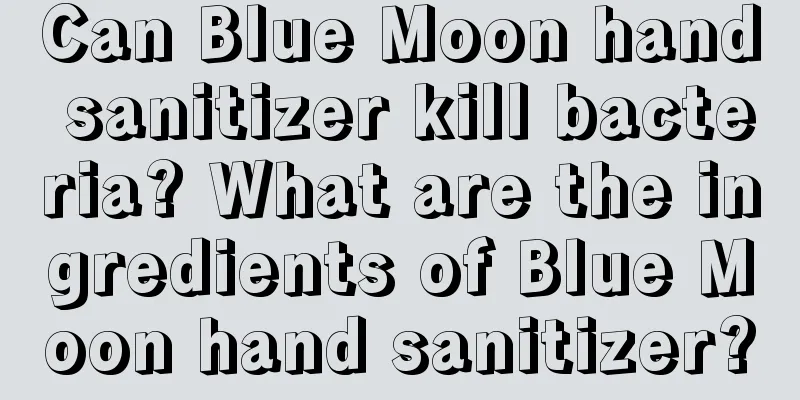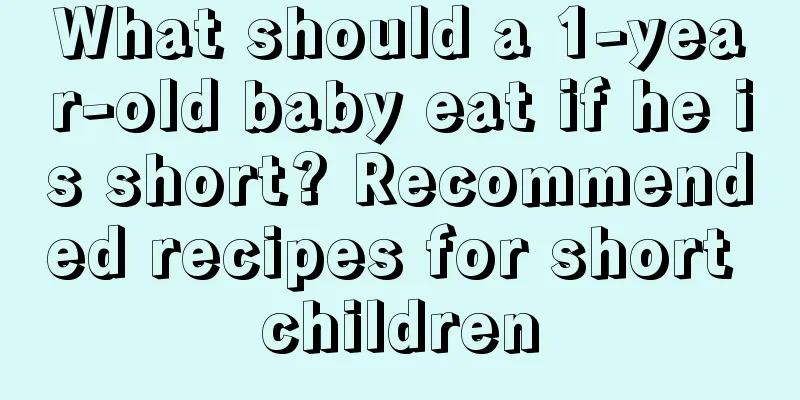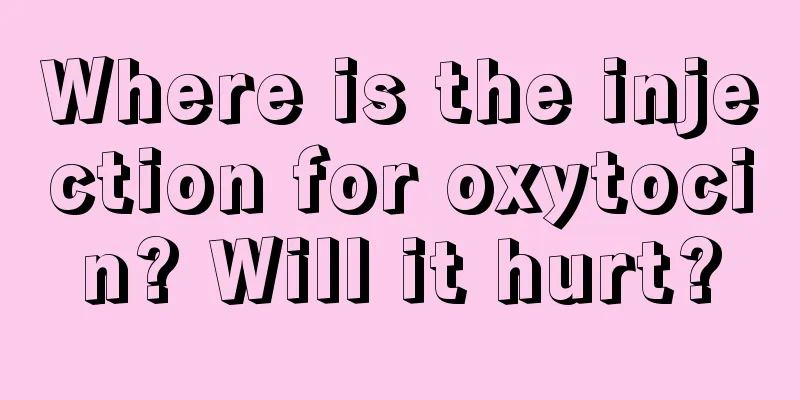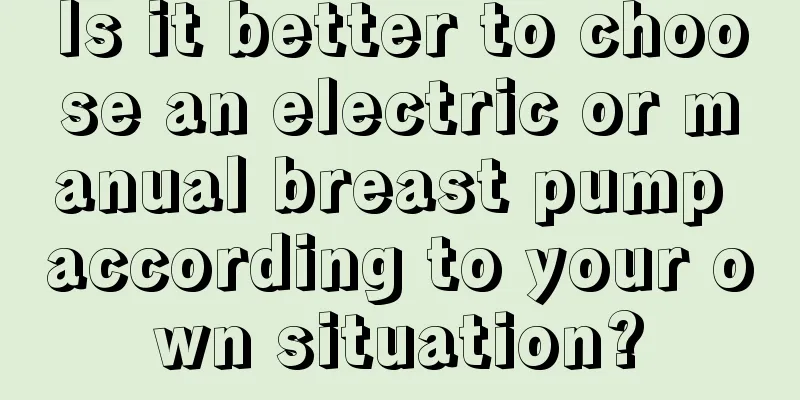What are the symptoms of teething in babies? Will teething cause loss of appetite in babies?
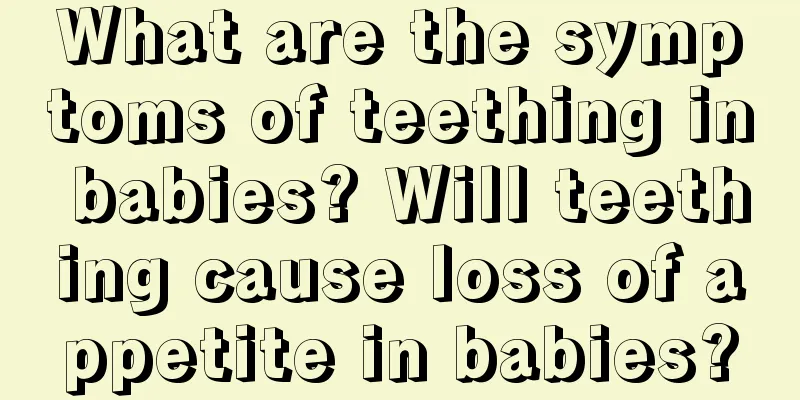
|
Teething is something that every child will experience, but do you know the process and precautions of teething? Today, let’s learn about it together. What are the symptoms of teething in babies? And will teething cause loss of appetite? What are the symptoms of baby teething?1. Fever My baby had a fever when he was teething. Parents must understand the teething pattern of their baby. Sometimes they have a fever to see if it is because they are teething. This is easy to overlook. As long as the baby's fever does not exceed 38° and he is in good spirits, it is okay to drink more water. But if it is serious, you should see a doctor to see if it is infected. 2. Diarrhea Some babies may have diarrhea when they are teething. It is usually not serious, but if it is serious, you should see a doctor. 3. Irritability and crying When babies are teething, especially when their deciduous molars are growing, it is very painful. Babies will be very irritable and some babies will cry. Poor diet, because teething hurts, babies don't want to chew food. As long as the baby's teeth grow out, these symptoms will disappear and the baby will become a good baby again. 4. Drooling Drooling is the most common phenomenon. Babies drool a lot when they are about to grow teeth or when their teeth have just erupted. Parents can put a bib on the baby to wipe off the drool in time. Will the baby lose appetite due to teething?Yes, it is normal for babies to have no appetite when they are teething. When babies are teething, their gums and mouths will feel more obvious discomfort, such as itchy gums and increased saliva, which will affect their appetite, and the baby may suddenly have less milk. Parents don't have to be too anxious. They can change their baby's diet appropriately, or use teethers, teething sticks, etc. to help their children with teething. Generally, it will be fine after this period of time. In addition to poor appetite, babies may also have high body temperature and cry frequently when they are teething. Parents can take their children's temperature regularly. There is no problem if the temperature is below 37.5 degrees Celsius. If the temperature exceeds this index, some physical cooling can be done for the baby. For the baby's restless mood when teething, it is necessary to comfort him in time. At what age do babies usually start to grow teeth?Generally, most children start to get their first deciduous teeth at around six months old, and then all the deciduous teeth will come out around the age of three, with a total of twenty deciduous teeth. They will start to replace their teeth at around the age of five to six. The first permanent tooth will come out, and then all the permanent teeth may come out by the age of twelve. The normal order of deciduous teeth is usually from the so-called front teeth, then the lower front teeth, and then from the middle to the sides, the incisors and molars will come out. Teething in toddlers refers to the physiological process from the first eruption of teeth to the growth of all deciduous teeth, which is one of the manifestations of development. The teething process is gradual and takes about three years to complete, and there will be discomfort during this period. What should I pay attention to when my baby is teething?1. Teething is generally painless, but some babies may feel uncomfortable and irritated. You can put a clean finger or moistened gauze in your child's mouth and rub the gums, which will help him; a cool teething ring can also be used to relieve gum discomfort during teething. 2. Be careful when using teethers. Excessive use of teethers is not good for children. 3. Teething does not cause fever. If your child has a fever, you should take him to see a doctor, as there may be other reasons. 4. Breastfeeding is beneficial to the baby's tooth development. 5. When your baby is 6 months old, he can use a cup. When he is 1 year old, he should stop using a bottle. This is good for his tooth development. |
<<: Who should hold the baby first when it is born? Three types of people are not suitable
>>: How to wear a baby jumpsuit? The benefits of wearing a jumpsuit for babies
Recommend
Can babies eat wild rice stem? At what age can babies eat wild rice stem?
Wild rice is cool in nature and sweet in taste. I...
How to choose a child safety seat? Which interface is better for a safety seat?
Child safety seats are a safety protection for ba...
Can pregnant women eat fire ginseng fruit? What are the benefits of eating fire ginseng fruit for pregnant women?
Pregnant women should eat a moderate amount of fr...
What is the lack of children who are thin? Can children who are thin eat protein powder?
Usually most children are thin, because most chil...
How many internal examinations should be done before giving birth? What other embarrassing examinations are there before giving birth?
Prenatal checkups are normal for expectant mother...
What brand is the same shoes that Jasper wears in "Where Are We Going, Dad?"
Since the fifth season of Where Are We Going, Dad...
How do women get through the grief period after failed pregnancy?
Some sisters don’t know how to face it after the ...
When does postpartum uterine contraction pain begin? What is postpartum uterine contraction pain?
Postpartum uterine contraction pain is a very nor...
What should I do if my child doesn't want to go to school during his rebellious period? What should I do if my child has a bad temper and is irritable during his rebellious period?
Usually, children will go through several stages ...
Does Crest toothpaste contain fluoride? Is Crest toothpaste good?
Crest toothpaste is a popular ointment. Does thei...
How to prevent your baby from getting a cold stomach? Benefits of eating carrot puree for babies
The last thing parents want to see is their baby ...
Haruki Murakami: School education should not stifle children's imagination
Haruki Murakami, a well-known Japanese writer, sa...
Is it better to have a caesarean section by transverse or vertical section? What is the difference between a caesarean section by transverse or vertical section?
There are two ways for women to give birth: natur...
What are the signs that the baby is tired from playing? How to make him sleep quietly?
Although babies cannot speak, we can learn some s...
Does Colgate toothpaste have tin foil seal? Does Colgate toothpaste contain fluoride?
I feel that the Colgate toothpaste I bought befor...
